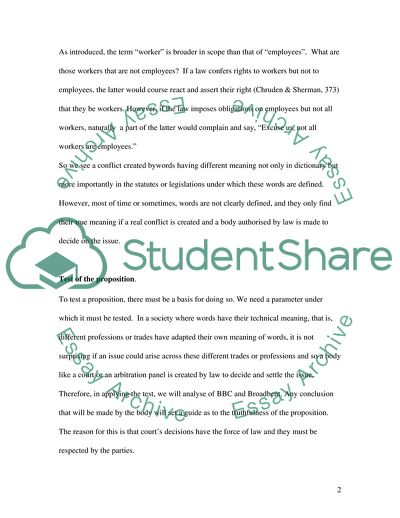Cite this document
(Broadbent v. Crisp Case Study Example | Topics and Well Written Essays - 1750 words, n.d.)
Broadbent v. Crisp Case Study Example | Topics and Well Written Essays - 1750 words. https://studentshare.org/law/1702931-in-broadbent-v-crisp-1974-it-was-stated-that-all-employees-are-workers-but-not-all-workers-are-employees-critically-evaluate-this-statement-commenting-on
Broadbent v. Crisp Case Study Example | Topics and Well Written Essays - 1750 words. https://studentshare.org/law/1702931-in-broadbent-v-crisp-1974-it-was-stated-that-all-employees-are-workers-but-not-all-workers-are-employees-critically-evaluate-this-statement-commenting-on
(Broadbent V. Crisp Case Study Example | Topics and Well Written Essays - 1750 Words)
Broadbent V. Crisp Case Study Example | Topics and Well Written Essays - 1750 Words. https://studentshare.org/law/1702931-in-broadbent-v-crisp-1974-it-was-stated-that-all-employees-are-workers-but-not-all-workers-are-employees-critically-evaluate-this-statement-commenting-on.
Broadbent V. Crisp Case Study Example | Topics and Well Written Essays - 1750 Words. https://studentshare.org/law/1702931-in-broadbent-v-crisp-1974-it-was-stated-that-all-employees-are-workers-but-not-all-workers-are-employees-critically-evaluate-this-statement-commenting-on.
“Broadbent V. Crisp Case Study Example | Topics and Well Written Essays - 1750 Words”. https://studentshare.org/law/1702931-in-broadbent-v-crisp-1974-it-was-stated-that-all-employees-are-workers-but-not-all-workers-are-employees-critically-evaluate-this-statement-commenting-on.


